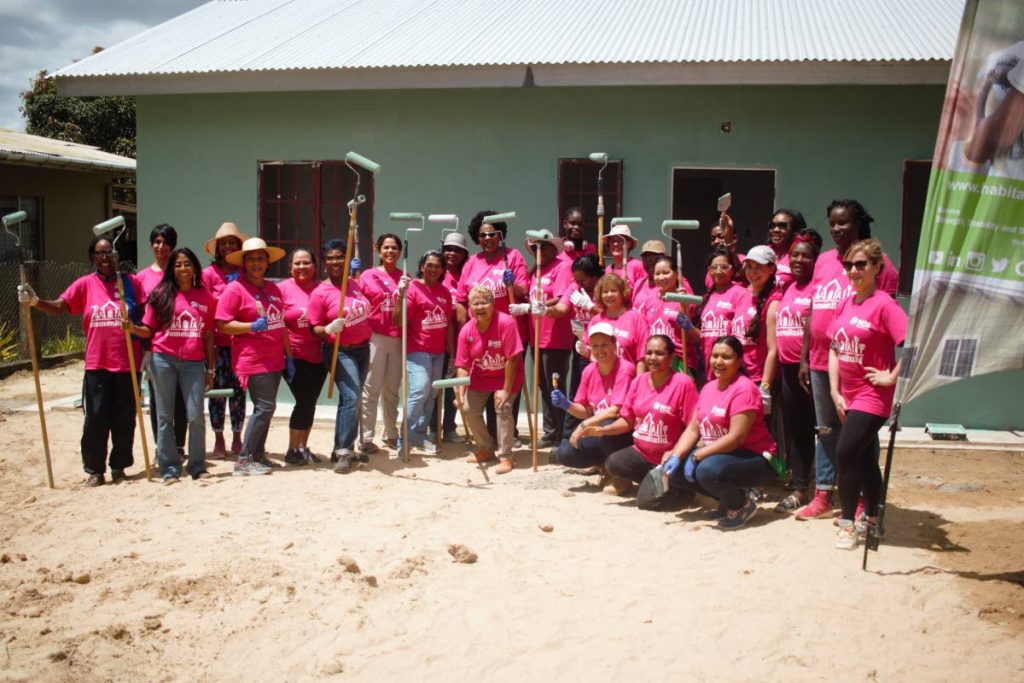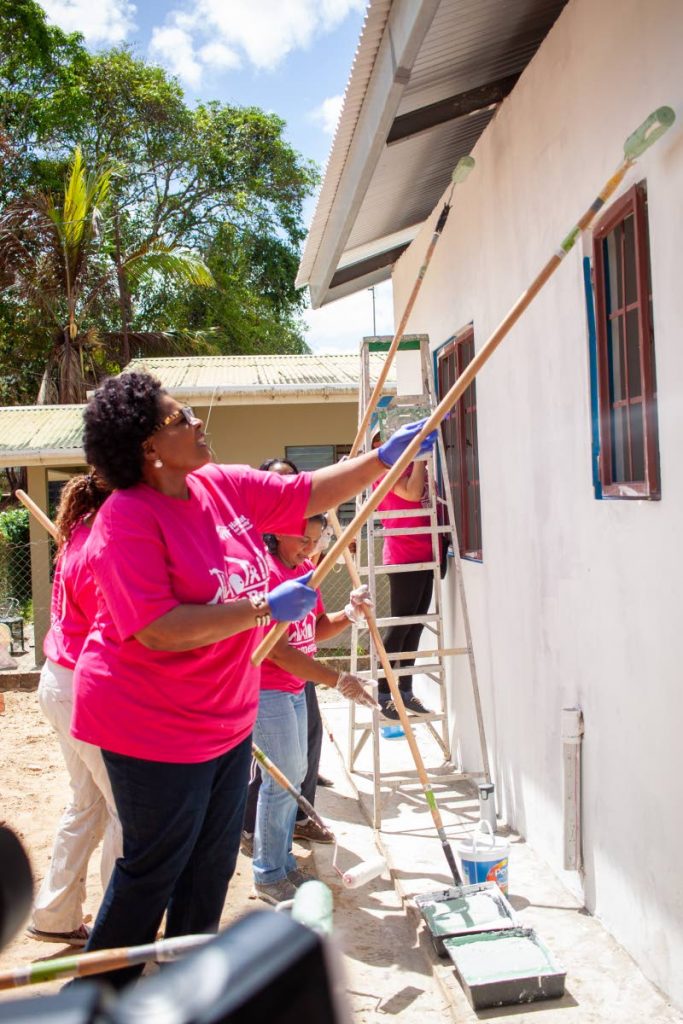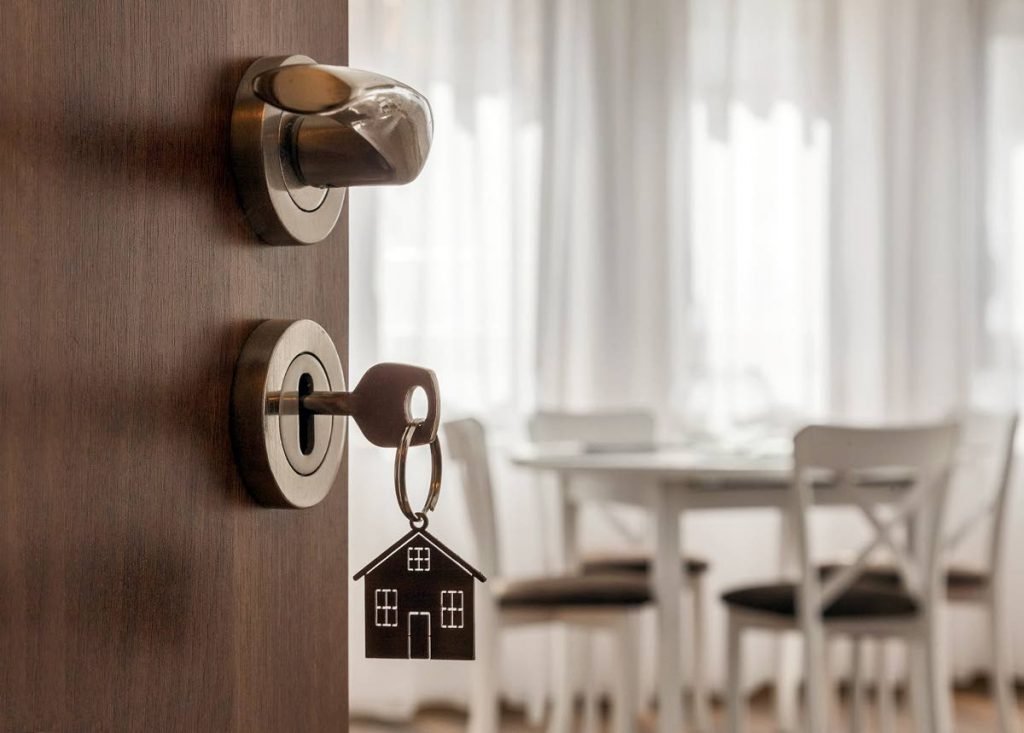You can help provide a home

A home is one of the most important things a family can own. It provides shelter and peace of mind. It is where children learn some of their most important lessons and learn the basics of their family life. For most people a home is a safe place where they get their first lessons through their families on communication, relationships and love.
But many people in TT do not have a proper home to live in, and some do not have a home at all.
Habitat for Humanity, the TT chapter of the worldwide organisation devoted to providing homes for the homeless for the past 23 years, has tasked itself with providing affordable housing to people who would not otherwise be eligible for a loan to buy a home for themselves and their families. But Habitat for Humanity is not only about building homes for the homeless.
Chairman of the capital campaign cabinet Sieunarine Coosal and national director Jennifer Massiah told Business Day they also assist in disaster preparedness, contribute to the United Nations’ sustainable development goals, particularly in the development of sustainable cities and communities, and provide communities with infrastructure, education and motivation to help themselves.
But they need help, and you can help them provide homes, education and infrastructure to those who need it most.

It is not only money that is needed. People can donate their skills, their strength, their capabilities and their know-how in order to help the organisation provide people with this precious commodity. In fact, both Coosal and Massiah agreed that all parts of TT’s society are needed if they are to provide homes for the homeless.
“We don’t mind monetary contributions, but that is but one way people can help,” Coosal said. “We are also looking for assistance in labour, in material, in volunteers and many other ways. There are people who struggle on a daily basis, and they must never be forgotten. We need to find unique ways to contribute our work to see how we can assist them. Your financial support, your voice and your time can help promote stability, strength and self-reliance in families in need of an opportunity.”
According to the 2019-2020 budget, approximately 175,000 people have applications with the Housing Development Corporation (HDC) and are without a home of their own. Massiah said the number is much higher, more to the tune of 250,000 people without adequate shelter.

www.wayfengshui.com -
“When we look at the staggering statistics in TT, we must realise that the private sector, Government and civil society need to come together to make this a matter of concern,” Massiah said.
Their organisation has two boards – the board of directors, and the capital campaign board, which is a fund-raising board, made up of directors and CEOs of some of TT’s most influential companies. Coosal, who took over as chairman of the capital campaign board from Ronald Harford in February, is joined by Gabriel Faria, Gregory Aboud, Dominic Hadeed, Eugene Tiah, Dawn Thomas, Nicholas Lok Jack and Shaun Rampersad.
The board is tasked with raising funds for the corporation’s projects. Over the past 12 years they raised more than $38 million to provide affordable housing, education and relief to the underprivileged. Under Coosal’s leadership, the board intends to raise another $58 million in the next five years.
With that money Habitat for Humanity will embark on over 500 housing solutions, which include repairs for homes, completion of homes and building homes altogether. They will also try to teach families responsible behaviour and how to build proper drainage and infrastructure while revitalising their communities.
“These are people with big hearts,” Massiah said. “In their busy time trying to run their businesses through very troubled waters, they are taking time out to say I want to help those families out there that are vulnerable.”
Coosal’s company alone has provided $3 million in material over a period of three years.
“That includes plastering sand, terrazzo chips and aggregate and blocks – anything they need that we are producing.”
But you don’t have to be a big business owner to assist. The capital campaign cabinet has a fund called Architects of Change where people who think they don’t have much can contribute small amounts to the goal of helping a family get a home and helping a community develop.
“They can give a hundred dollars a year,” Massiah said. “We have online donations, you can go into the bank or come to our offices, it could even be payroll devoting five dollars a month – it doesn’t matter.”
“We don’t mind the big contributions but we will not (ignore) the small ones. Every cent counts.”
Even if you do not have any money, you can contribute with your labour. One of the many forms of donations that Habitat for Humanity accepts is something called “sweat equity” where you contribute with you labour to build a home.
“We like that. When people can come and assist in mixing mortar, taking water out of a barrel, moving gravel, we appreciate that very much. You could be a very good mason, or a block layer, we need that as well to put a house together,” Coosal said.
Sweat equity is not limited to labourers alone. Professional and civil engineers can donate their services and technical knowhow. Architects can donate drawings for town and country approval. And if they do not wish to provide expertise they can always provide labour.
Even the Government can help, by allowing Habitat for Humanity to help them.
In the budget it was announced that Government intends to assist the thousands of people who are without homes by providing 6,000 housing units by the end of the year, and 3,000 for each year after that.
But even the Minister of Finance, Colm Imbert, in his budget address said that would not be enough to provide adequately for the demand for housing.
The people at Habitat for Humanity say they are willing to help and have presented themselves to several administrations, offering their services.
“Habitat is non-political, non-discriminatory and non-partisan,” Massiah said “It doesn’t matter the side of the coin you represent. What we do every time a new government comes into power, we offer Habitat on a silver platter. We offer all the methodologies and systems we have globally. This is how we suggest you can address housing, this is how you can bring communities together. Instead of government alone trying to address a huge problem we can connect government, private sector and civil society with community and answer the problem better than any one actor can.”
While they have have good relations with governments in Guyana, Jamaica and Dominica, in TT they have assisted in connecting those in need with government subsidies.
“That is one way we have helped. But we wish we could do more,” Massiah said.
Habitat for Humanity has already developed strategies to build homes at half the cost of the national budget’s figure of $500,000, and, through donations of expertise, funding and sweat, they can reduce the price for the person getting the house, even less.
But they were adamant to point out this was not a handout. While those who are given homes through Habitat for Humanity have to pay at greatly reduced rates, they still have to pay, whether through money or through sweat equity.
Coosal and Massiah agreed that one of the key areas in which Government could assist them is in the area of land tenure, which dictates how access is granted to use control and the transfer of land.
“The key issue has always been poorer families don’t have access to good land tenure. It has to be Government’s policy to make land available, and I know they were working with the land settlement agency and trying to do a land regularisation project. I know it is somewhere in transition and near completion but they need to move that along faster,” Massiah said.
“There are a lot of people who are in need of a home. Building the home, we can do that, but you cannot go and build a home that is not owned by the person we are building it for. That holds us back a lot,” Coosal said.
Massiah and Coosal said they would be able to provide much better housing and even duplexes and apartment buildings if they were allocated large parcels of land. Government could also assist by changing land and housing policies to include low-income families. Coosal also called for decentralisation of the country.
“Everyone wants to live in the foothills of the East-West Corridor,” Coosal said. “We need to open up areas, not only for housing but for agriculture.”
Coosal, who has also been in the organisation for 23 years, was thankful that he was chosen as a leading member to take Habitat for Humanity into the next two decades.
“When you have been involved in Habitat and you see what you have been doing to make a change in people’s lives that is what made me stay with Habitat. Because what we are doing is something that is a need for the community,” he said.
Both Massiah and Coosal are proud of Habitat for Humanity’s work over the past 23 years. Massiah said it is not just the organisation’s accountability and connection with other chapters worldwide that has kept the organisation alive to help so many, but its purpose – to ensure everyone has an opportunity to have a place to call home – that will keep them going.
“As long as TT citizens need a home Habitat for Humanity will continue to exist,” Massiah said.
PUT IN BOX
“We’ll weather this covid19 storm”
Habitat For Humanity is offering moratoria on mortgages to help its homeowners in the uncertain times of covid19.
“We know right now that many of you are concerned about what the future holds. And while we are certain that other issues, such as your health, employment, business and family are at the top of your list of concerns, we wanted to reach out to you to reassure you that we have not forgotten you, nor our shared fight for a world where everyone has a safe, decent and affordable place to live,” Habitat said in an e-mail.
Habitat will be awarding the moratoria, a deferral of payment to loans and mortgages, on a case by case basis.
Habitat also has produced and shared a video in collaboration with Voice of the Deaf and Hard of Hearing, along with the Positives in TT, to provide messages on covid19 targeted to the deaf.
“We may not be able to give a physical hug, but we are making sure that our messages and talks are more intentional and supportive of individual concerns.”
Habitat promised to share its plans for the future and called for the board, management, staff, home owners, donors and supporters to come together as a family in this time. “We must come together as a family and a country to weather this storm together.” People who would like to get moratoria on their Habitat for Humanity homes are advised to contact their case officers at 398-7381.

Comments
"You can help provide a home"